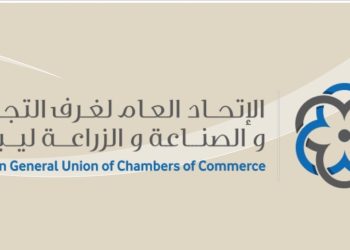By Libya Herald reporter

Tunis, 1 July 2015:
Uganda has granted Libya two month’s grace during which it must put its Ugandan telecoms company, . . .[restrict]Utl, back in order.
Libya, through its LAP Green Network, a wholly-owned subsidiary of the Libyan Post, Telecommunication and IT holding company (LPTIC), owns 69 percent of UTL, which it had acquired during the Qaddafi era in 2007. The Ugandan government owns the remaining 31 percent.
The grace period offered to the Libyans came only after the highest level intervention of Libyan Foreign Minister Mohamed Dayri. Dayri had arrived on an official visit to Uganda this week and had held talks with Ugandan President Museveni on Monday.
Ugandan media reports that Libya has pledged to invest about US$ 50 m in UTL over the next two months in order to save the company. It is reported that Utl had issues of ‘’governance’’ as well as a lack of investment that had contributed to its near collapse.
This was the first time that any high ranking Libyan official had visited Uganda since the 2011 Libyan revolution that had toppled former dictator Qaddafi.
Sources have confirmed to Libya Herald that a large delegation from Libya had arrived in Kampala accompanying Dayri’s visit in order to negotiate a deal with the Ugandan authorities who it was feared would follow the path of the Ivory Coast by either cancelling UTL telecoms operating licence or even nationalise Libya’s stake in UTL.
In May, a Ugandan Parliamentary Committee had advised its government to nationalize the drifting Utl after its management had admitted that it was short of cash.
Libya is one of the biggest foreign investors in Uganda and owns other investments in the country including in the housing, tourism, textile and industrial sectors.
It will be recalled that last month the Ivory Coast nationalized another one of Libya’s telecoms investments, Green Stream, as a result of its failure to pay up its debts to the Ivorian authorities, including its telecoms licence fee.
UTL claims that it is Uganda’s first telecoms operator and the first to own a full telecoms operator licence. It is Uganda’s national fixed, mobile and internet provider, supplying voice and data communications solutions that include ISP, data and NGN services. It claims that it has the largest fixed line network, is the largest ISP in the country and is the only operator to offer a 3G network.
Its problems are thought to be as a result of a mixture of the effects of the UN freeze on Libyan assets during the Libyan revolution as well as internal management issues. It is no secret that Libya has been too busy with its internal political split to pay sufficient attention to its overseas investment.
Many of UTL’s problems are also thought to be legacy issues from the Qaddafi era and the inherent contradictions of a state-owned institution owned by two African governments.
The failure of the Ugandan government to pay its telecoms bills to UTL has no doubt also been a contributing factor to UTL’s cash shortage.
In March this year, UTL’s Managing Director, Ali Amir resigned and was replaced in May by UTL’s Chief Fixed Services Officer, Mark Shoebridge who had been with UTL since 2013. He is UTL’s third MD within three years.
But UTL’s problems are also partly due to the more aggressive competition in the Ugandan market from operators such as MTN and Airtel especially in the more lucrative mobile money platform.
[/restrict]
t
he








